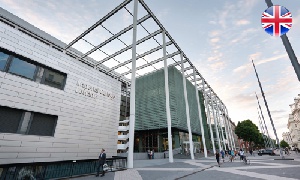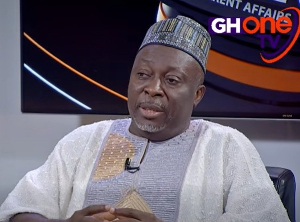By George Sydney Abugri
September and October of every year are the months which see a gravitation of fairly large numbers of young Ghanaians toward Europe and the United States in pursuit of international academic and professional qualifications, with a good number of them bound for our former colonial master’s hallowed kingdom, the United Kingdom.
When we were studying in the UK many years ago, our student visas permitted us to work for a maximum of 20 hours a week. Some African students tried playing smart by working beyond the maximum number of hours per week, but the system caught them. If caught, you were likely to be deported.
Most of the jobs available for foreign students were typically jobs as waiters in restaurants, security jobs {the millennium watchman type}, data filing clerks etc.}.
After their courses of study, many foreign students were easily able to get the duration of their student visas extended, so that they could stay in the UK and work. All that was possible when the Liberal Democrats were in power. Now with the Conservatives in power, things are likely to change.
Before her recent election as Prime Minister of Britain to replace David Cameron who resigned in the wake Britain’s exit from the EU, Theresa May in her capacity as Home Secretary announced a crackdown on immigration, including new restrictions that will ban all foreign students from working and force them to leave the UK when their courses end.
In 2014, 121,000 non-EU country students entered the UK, but only 51,000 left after their courses. May said the fresh crackdown was intended to stop the use of colleges and universities in the UK as a 'back door to a British work visa'.
The new rules she went on to say, would apply to all students from outside the European Union which naturally included Ghanaians. May went on to ban 870 “bogus universities” and colleges from taking foreign students.
With Britain now out of the EU, it is uncertain what her move against foreign students from countries outside the EU will be, but it makes sense for Ghanaian parents, guardians and prospective students of universities in the UK to exercise some caution since she is now more powerful than the Home Secretary and views on migration are unlikely to have changed.
Those bound for the UK who are lucky to be on government scholarships, usually have pretty little to worry about, but self-financing students usually have to clear the first hurdle of convincing the British High Commission that they have enough funds to meet their cost of education in the UK. Those who are unable to, are refused visas.
“We don’t want you to end up begging for coins on the streets of London to buy food” an official of the high commission once told a student visa applicant who had problems convincing him that he had secured adequate funding for postgraduate studies in the UK.
Those without adequate funding who manage to hoodwink the British High Commission to grant them student visas with borrowed bank statements, usually do so to their ultimate regret: A good number end up with worthless pieces of paper as academic qualifications from rogue learning institutions. Some end up spending five or more instead of two years trying to study for a postgraduate degree.
As indicated above, it had always been possible before Lady May’s announcement of a crackdown on migration, for foreign students able to enter the UK, to secure jobs with their student visas. This helped many of them and especially self-financing students to pay fees and meet living expenses.
The international exposure may be beneficial and the big brother experience of living in a small space under the same roof with people of totally different cultures also useful for developing broad perspectives on life; otherwise you wonder why so many people try flocking abroad to study.
Is it the lure of international degrees from prestigious institutions or an attempt at entrenching the social classes? {Apart from beneficiaries of scholarships apart, it is mostly the children of the wealthy who attend universities abroad.}
The answer may lie in the fact that not enough resources have been have been made available over the years for the development of educational facilities and infrastructure. Many young Ghanaians who qualify to train as doctors for example, cannot enter medical school and many more that are qualified to train as other professionals, cannot enter public universities because of the problem of accommodation. The result? Many have been heading for universities abroad.
The new restrictions on foreign students in the UK however now open a new and unpredictable chapter in what appears to be a still unfolding story.
Opinions of Monday, 10 October 2016
Columnist: Abugri, George Sydney















